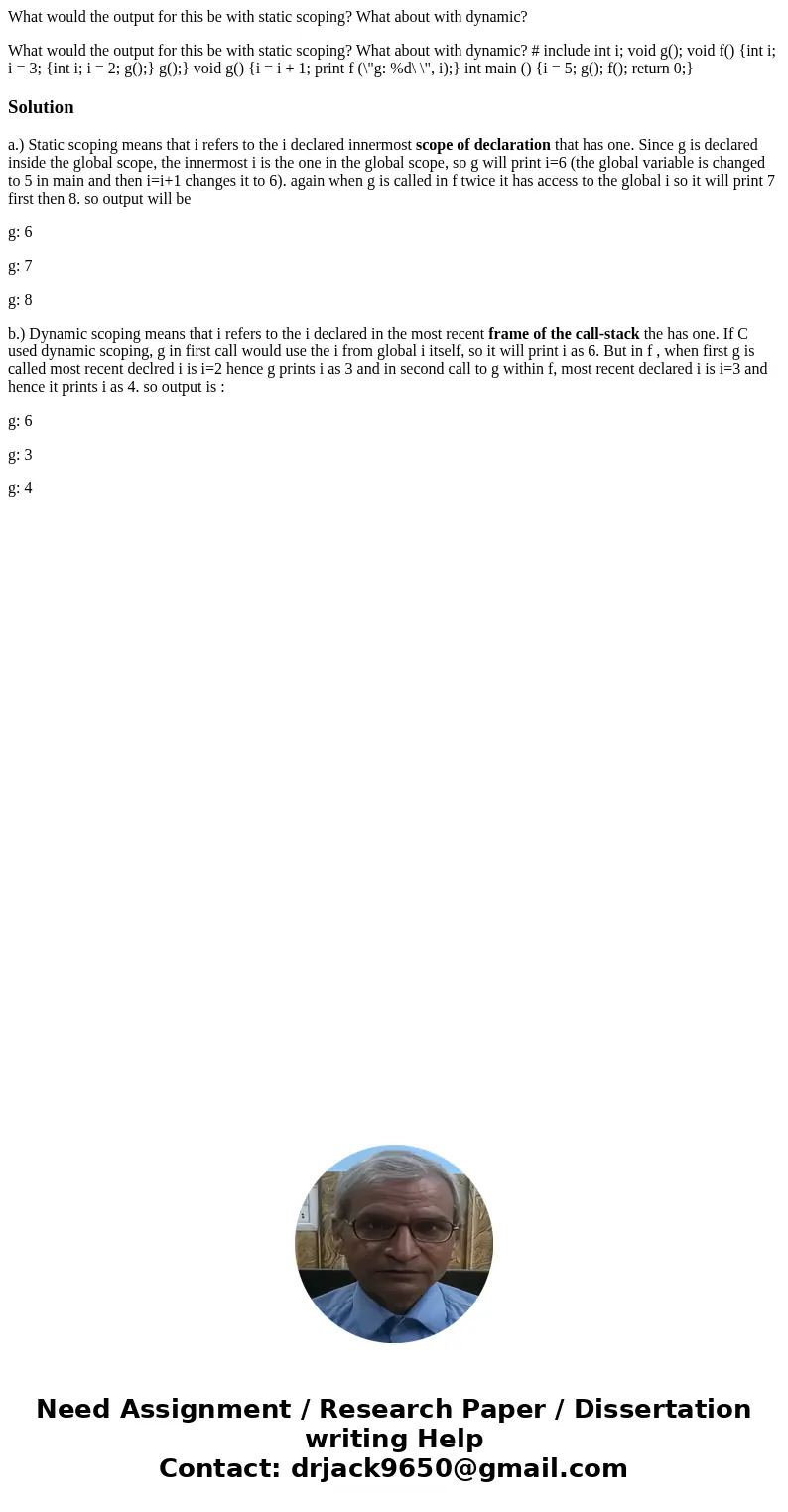What would the output for this be with static scoping What a
What would the output for this be with static scoping? What about with dynamic?
What would the output for this be with static scoping? What about with dynamic? # include int i; void g(); void f() {int i; i = 3; {int i; i = 2; g();} g();} void g() {i = i + 1; print f (\"g: %d\ \", i);} int main () {i = 5; g(); f(); return 0;}Solution
a.) Static scoping means that i refers to the i declared innermost scope of declaration that has one. Since g is declared inside the global scope, the innermost i is the one in the global scope, so g will print i=6 (the global variable is changed to 5 in main and then i=i+1 changes it to 6). again when g is called in f twice it has access to the global i so it will print 7 first then 8. so output will be
g: 6
g: 7
g: 8
b.) Dynamic scoping means that i refers to the i declared in the most recent frame of the call-stack the has one. If C used dynamic scoping, g in first call would use the i from global i itself, so it will print i as 6. But in f , when first g is called most recent declred i is i=2 hence g prints i as 3 and in second call to g within f, most recent declared i is i=3 and hence it prints i as 4. so output is :
g: 6
g: 3
g: 4

 Homework Sourse
Homework Sourse